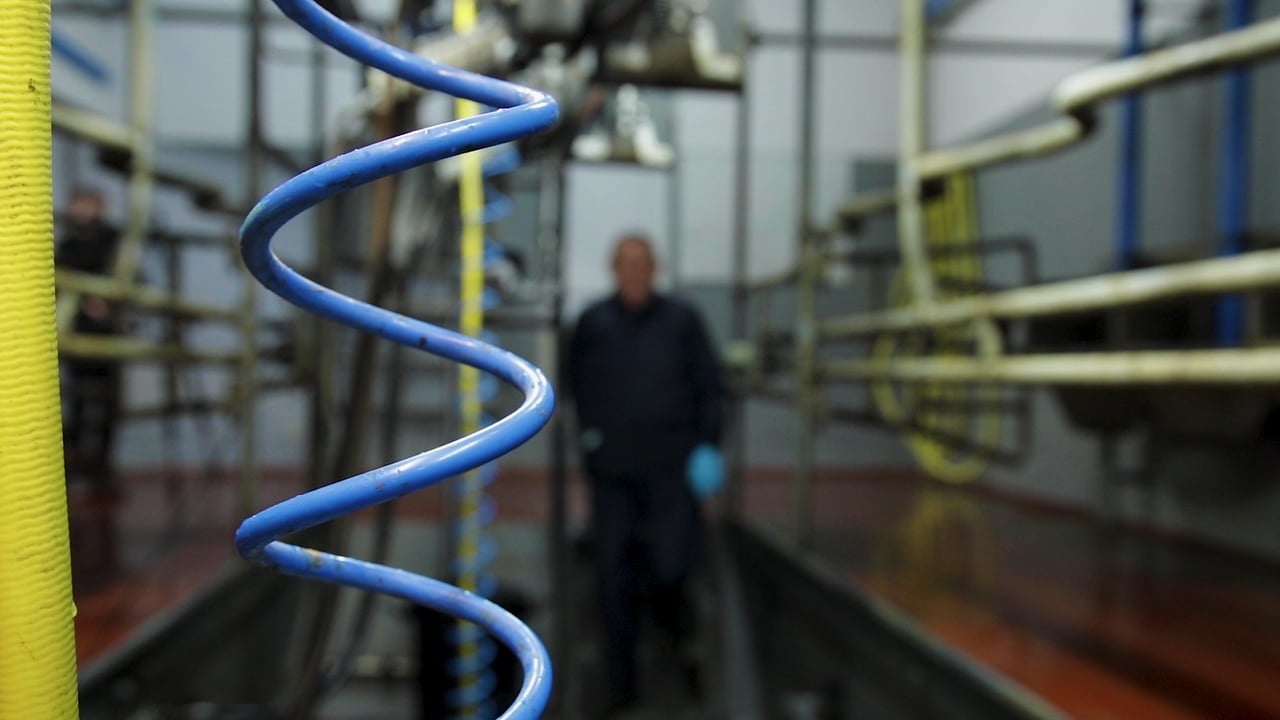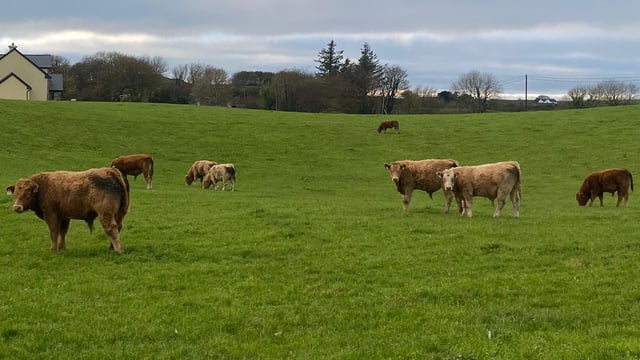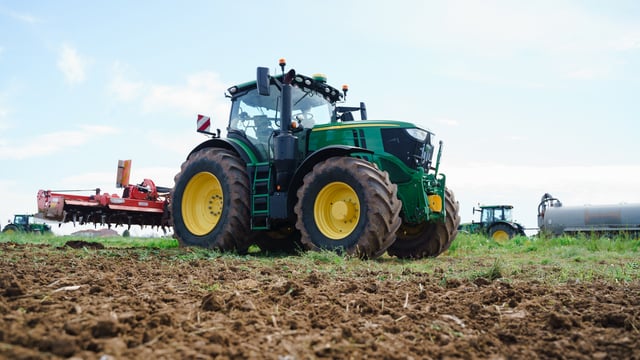Income volatility measure for farmers 'disproportionate' - tax group
The government's Tax Strategy Group (TSG) has said that introducing an income volatility measure for farmers would be "disproportionate".
The Department of Finance recently published documents from the Tax Strategy Group (TSG) which meets every year in advance of the national budget to examine possible changes to the country's tax regime.
The documents, which cover all the various forms of taxes, were released late last month following the meeting of the TSG on July 15, and discussed possible tax changes ahead of Budget 2026.
The TSG is not a decision-making body. The documents produced by the TSG outline options and issues to be considered as part of the budgetary process.
One of those documents discusses income tax, with one section of that document dedicated to discussing a potential income volatility measure for farmers.
The TSG document stated that such a measure should not be recommended to the minister for finance.
In the Programme for Government, the current government committed to examining "a new farm income volatility taxation measure to safeguard farmers from markets rising and falling".
The TSG income tax document examines a potential income volatility measure that would have the following elements:
- A milk, grain or livestock supplier can enter into a voluntary agreement with their co-operative (or approved purchaser of primary agricultural produce) to defer up to 5% of their gross annual income by way of a deposit with the co-operative;
- The amount of the deposit is not tax assessable income in that income year, but is in a future year when the farmer opts to draw down the deposit;
- The deferred income can be drawn down in a subsequent year and subject to income tax at the time of draw down;
- The maximum period the deferred income can be retained in the scheme is five years from the date the deferred income is introduced to the scheme, operating on a five-year rolling first-in first-out basis.
The proposal has the tax benefit of being able to fully utilise tax credits and tax bands to the maximum extent in years where they otherwise would not have had sufficient income to do so, and to minimise the tax liability in other years when tax credits and tax bands have been fully absorbed.
The TSG paper acknowledged that income volatility is a significant issue that can heavily impact the farming sector from year to year.
However, it also pointed out that income averaging already exists as a taxation measure. This allows farmers to "smooth" their income tax liability over a defined period.
The current averaging measure allows eligible farmers to be charged tax on the average of the aggregate farming profits and losses over a five-year period.
Tax is charged on the average income of the year in which the averaging measure is opted for and the four tax years immediately preceding that year, thus smoothing their tax liability over a five-year cycle.
The income averaging measure was broadened, and further options added to it, in a number of budgets in the last 10 years.
Other measures that are already in place to deal with income volatility, according to the TSG, include farm incorporation and loss relief through offsetting losses against off-farm or spousal income.
Income volatility
According to the TSG analysis, the current income averaging measure delivers a greater degree of income tax smoothing, compared to an income volatility measure as called for by farm organisations.
The analysis shows that, in the period 2018-2024, the maximum tax to be paid by farmers if income averaging is used is €6,445, versus €9,399 with a hypothetical income volatility measure (for dairy farmers only, these figures would be €29,937 versus €45,567 respectively).
The TSG said it is also necessary to examine considerations under EU state aid rules, as an income volatility measure would give preferential treatment to the farming sector.
Any income volatility measure would have to respect the requirement that aid per a single farm undertaking is limited to €50,000 over three years.
Regulation
Furthermore, the proposal that the deposit would be held by a co-operative could require approval from the Central Bank of Ireland before a co-operative could be regarded as a lawful deposit-taking institution.
Where a similar income volatility measure already exists in Australia, entities taking deposits from farmers must be authorised to do so by the relevant regulatory powers.
The TSG said that there would be significant regulatory hurdles to overcome in setting up an income volatility measure.
The TSG paper also subjected the hypothetical income volatility measure to the same 'ex-ante evaluation' that proceeds the introduction of a new tax expenditure.
In doing so, the TSG said that, while farm incomes can be volatile, it is not apparent that this is a result of a specific market failure that should be addressed, which is one of the requirements of the ex-ante evaluation.
The TSG also said that introducing an income volatility measure would give rise to claims from other sectors, who already cannot avail of income averaging, for similar treatment.
Conclusions
The TSG document said that, taking all factors into account, the introduction of an additional income volatility measure, as proposed, is not recommended.
"Given that the proposal is consistently raised by stakeholders, it is likely that an income volatility measure would be of benefit to some farmers. However, it remains unclear as to precisely who would benefit from such a scheme," the paper said.
It added: "In light of this, and supported by the considerations [outlined in the paper], it would seem disproportionate to introduce a new measure."











